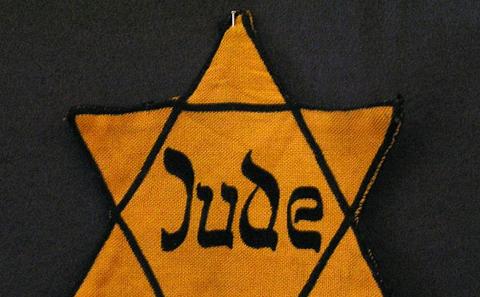‘The Holocaust: A beginning or an end?’ Study Day Event

- Time:
- 10:00 - 16:00
- Date:
- 15 June 2014
- Venue:
- Avenue Campus Highfield Road Southampton SO17 1BF
For more information regarding this event, please email Lifelong Learning Team at lifelonglearning@southampton.ac.uk .
Event details
We will be holding a one-day cultural event on Sunday 15 June consisting of a series of short talks led by experts from within the Parkes Institute. This thought provoking and inspiring conference will provide you with the opportunity to learn and engage in discussion about the Holocaust from academics of international distinction.
A study day for the general public on ‘The Holocaust: A beginning or an end?' will be held on Sunday 15 June 2014. The day will consist of a series of talks by experts from the Parkes Institute for the Study of Jewish/non-Jewish Relations with plenty of opportunities for questions and discussion.
The talks will cover a diverse range of topics on the Holocaust or Shoah and examine this difficult period of Jewish history from a variety of different perspectives, including history and literature, film, memoirs and Holocaust testimony. The day will present the opportunity to learn about perhaps more unfamiliar aspects of the Holocaust and examine developments within Jewish life since this defining event.
Programme
Dr Helen Spurling - Interpreting the Bible after the Holocaust
The Bible (Tanakh for the Jewish people and Old Testament for Christian communities) can be described as a shared scripture for Jews and Christians and as such an important basis for dialogue in Jewish-Christian relations. After the Holocaust, there was a re-examination of how to read and interpret the Bible amongst different Jewish and Christian academics, authors and communities. This talk will highlight some of these approaches and their relevance for Jewish-Christian relations.
Professor Tony Kushner - Jewish "Illegal Immigration" to Palestine and the Impact of the Holocaust, 1945-48
At the end of the Second World War, a growing movement of Jews - mainly but not exclusively European - attempted to reach the shores of Palestine. To the British authorities they were ‘illegal immigrants' and attempts were made to stop their arrival. To the organisers of the movement, they were ‘clandestine migrants' with a right to reach what they hoped would shortly become the Jewish state. From 1945 to 1948 this became a minor military battle with the British navy attempting to intercept as many boats as possible arriving in Palestine. But it was also a battle of propaganda in which the Holocaust and the Second World War were remembered and represented in a war to win over world opinion.
Dr Tom Plant - Anglo-Jewish Youth and the Holocaust
As the largest community to have escaped the Holocaust unharmed, in the years that followed the destruction of the Second World War, many British Jews felt themselves to be under a particular obligation to sustain the tradition of European Judaism. Anglo-Jewish youths, perceived as drifting towards an increasingly secularised and hedonistic non-Jewish society, quickly became the focus of this obligation, triggering a crisis of continuity within the community and an effort to reconnect with ‘lost' young Jews. This talk will explore the way in which, for many British Jews, the Holocaust symbolised both the end of Jewish life in Europe but also the beginnings of the rebirth and revitalisation of the Anglo-Jewish community.
Dr James Jordan - Survivors on Film and Television
In the early 1960s the publicity surrounding the Eichmann Trial saw ‘the survivor' rise to prominence, with many telling their stories for the first time. This illustrated talk will look at some of the different ways in which the survivor has been represented in film and television (in both fact and fiction), beginning with liberation and ending with current discussions as to how the Holocaust will be remembered once it has moved beyond living memory.
Jennifer Craig-Norton - Endings and Beginnings: The Kindertransport and the Holocaust
For every one of the 10,000 children involved, the Kindertransport was an ending: of family, of childhood, and of life in Continental Europe. For many it was also the end of formal education, birth language and culture. Emigration to Great Britain marked the beginning of new lives, new identities, new relationships, and new languages and cultures. The Holocaust was both an ending and a beginning for these child refugees as the fates of their families became known. This session will focus on these beginnings and endings through and examination of several case studies from the files of children who arrived here from Germany via Poland in 1939 under the auspices of the Polish Jewish Refugee Fund.
Charges
£31 full rate
£21 loyalty rate (Harbour Lights Members, Friends of Parkes, English Teachers Network, university staff and alumni)
£11 discount rate (students/sixth form & college students and those in receipt of income-based Job Seeker's Allowance, Income Support, Working Tax Credit, Council Tax or Housing Benefit)
All prices include lunch and refreshments
Payment
BOOKING IS NOW CLOSED
Please note that booking is required for attendance of this event.




